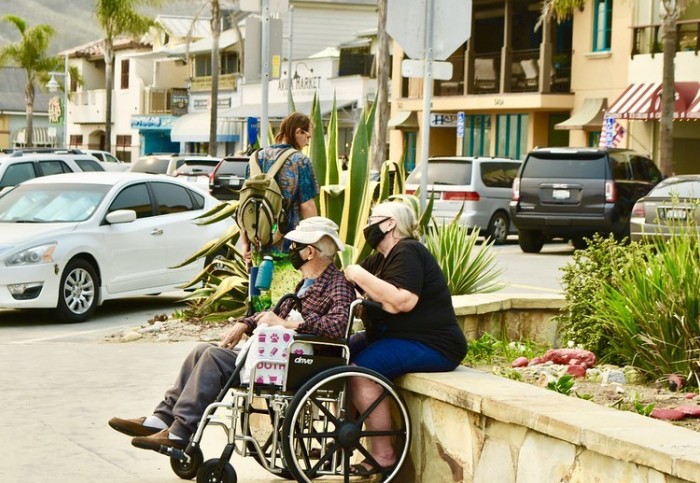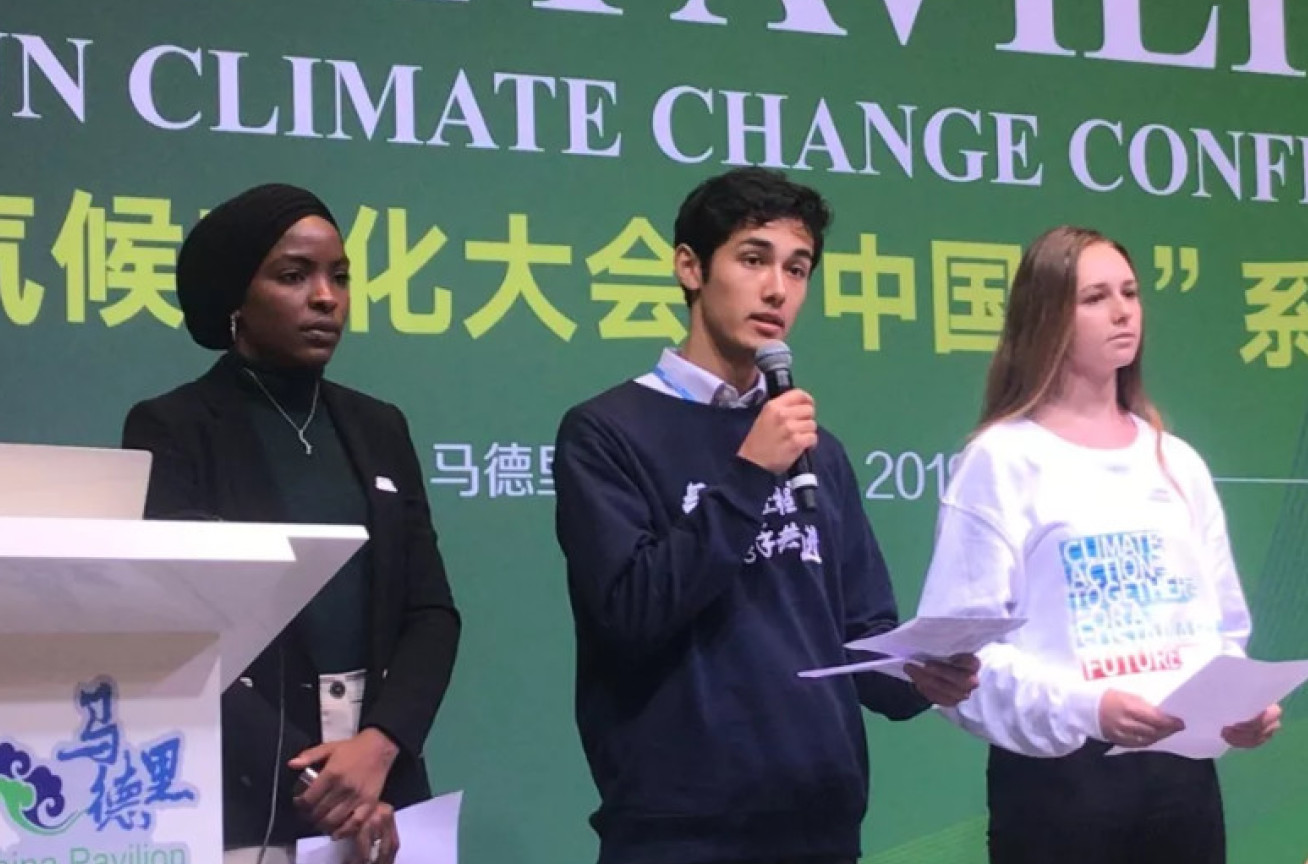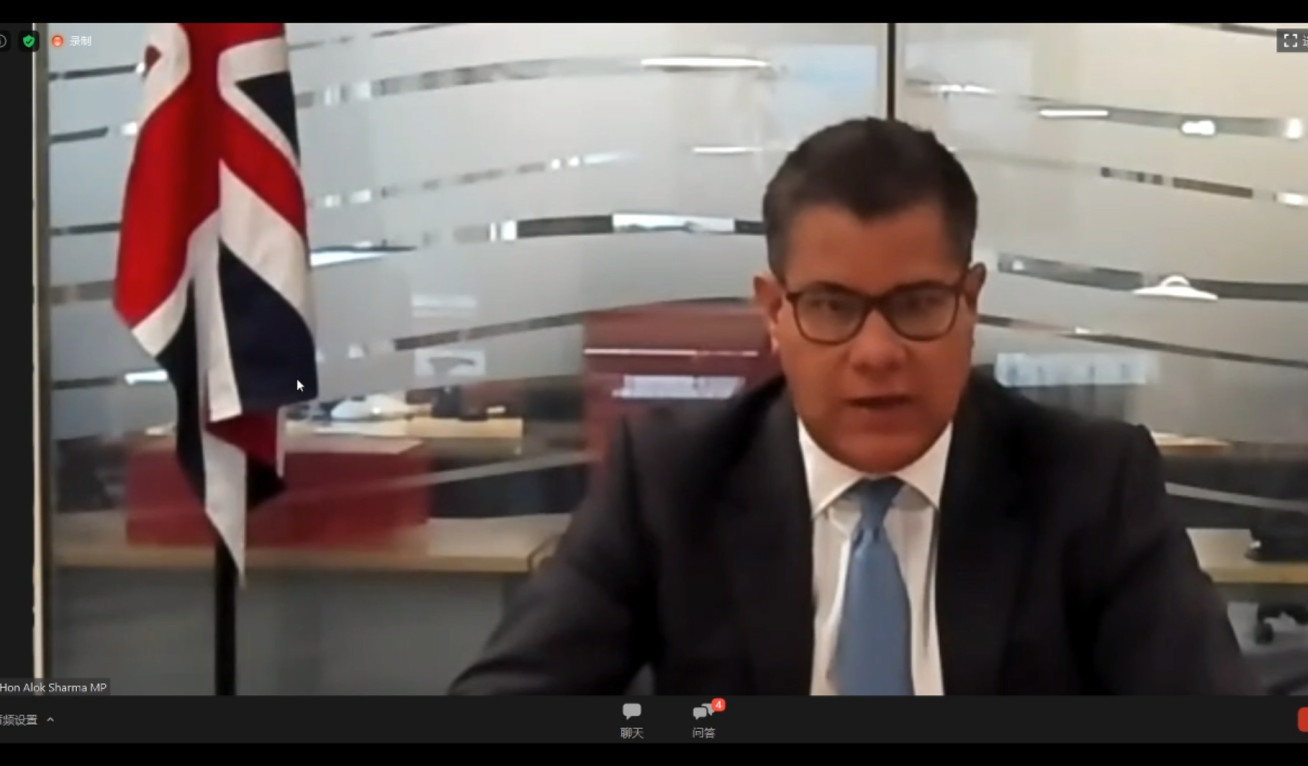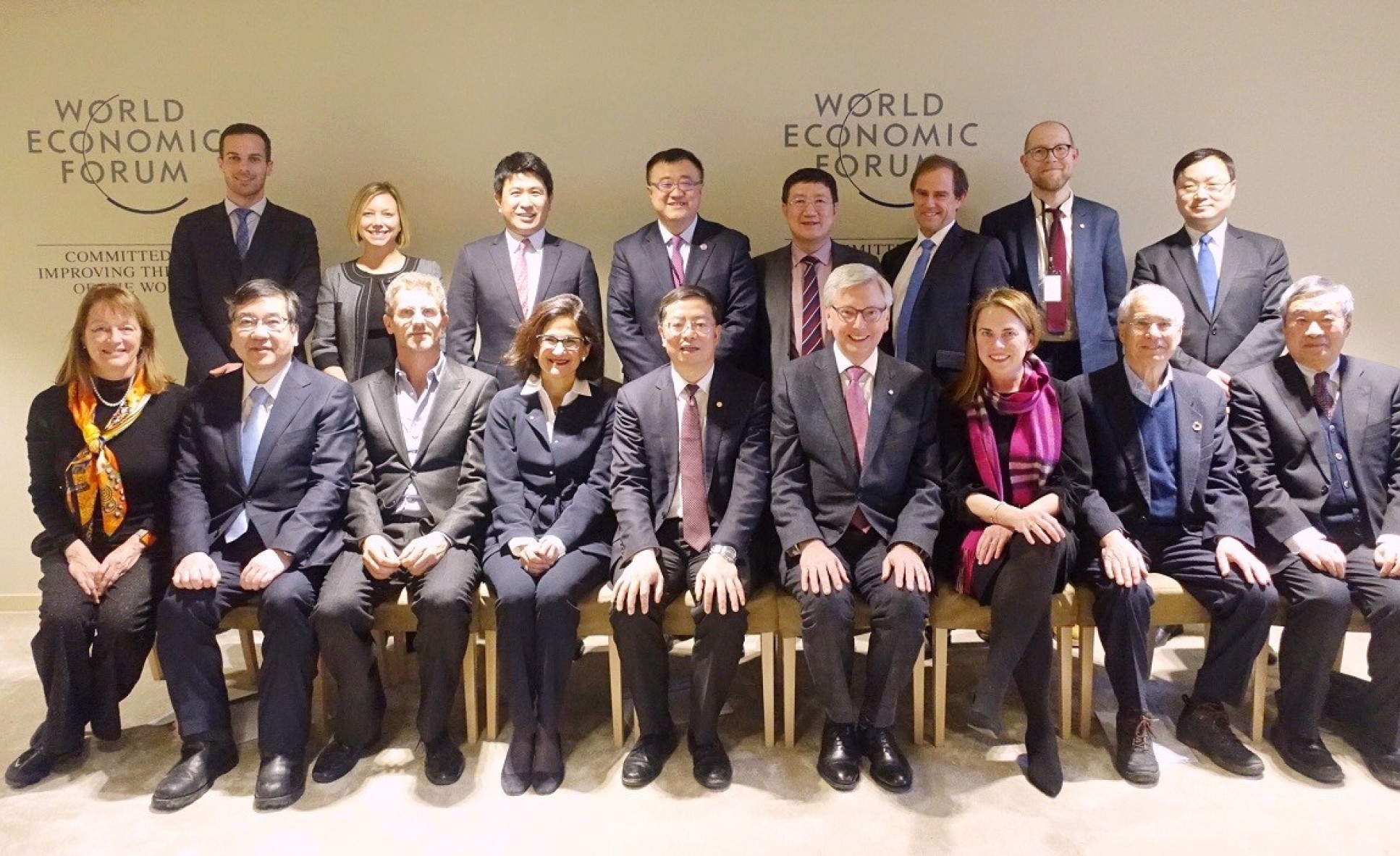Leading researchers call for faster cuts in carbon emissions to reduce poverty
by Simon Levey

Elderly couple wear face masks to protect them from wildfire smoke in California
Researchers at top global universities have committed to cutting their own carbon emissions and say their governments must do the same.
Governments and institutions are not doing enough to end their contribution to global warming - a move that would improve living standards and reduce poverty, say researchers organising a new international online conference.
Human activities including road and ship transport, flying, construction, heating and cooling buildings and manufacturing release greenhouse gases, or 'carbon emissions', primarily carbon dioxide and methane. These are causing environmental pollution and changes to the planet's climate system that mean more frequent and intense heatwaves, droughts, and tropical storms across the globe, disproportionately affecting people on lower incomes.
Countries are at very different stages of development and the transition to net zero emissions can and must be carried out in a way that improves living standards and reduces poverty around the world. Statement from Global Alliance of Universities on Climate (GAUC)
All 195 countries that signed the United Nations’ Paris Agreement committed to reduce their carbon emissions by 2050, but many have still not set national targets or outlined how to reach this goal.
The researchers behind the new international climate change conference, Pathways to Net Zero Emissions, which met this week, are urging governments to invest in a so-called ‘green recovery’- industries, jobs and economic opportunities that help to reduce carbon emissions - particularly at this pivotal moment when the Covid-19 pandemic threatens the livelihoods of millions of citizens.
In a statement, researchers, including Professor Martin Siegert, Co-director of the Grantham Institute – Climate Change and the Environment, at Imperial College London, said: “We recognise that countries are at very different stages of development and the transition to net zero emissions can and must be carried out in a way that improves living standards and reduces poverty around the world.”
International agreement
The statement and conference were organised by the Global Alliance of Universities on Climate (GAUC), which launched in January 2019, and now has 13 member institutions based in nine countries on six continents.

The conference is overseen by Tsinghua University in China and London School of Economics and Political Science (LSE), University of Cambridge and Imperial College London, in the United Kingdom.
Many of the member institutions of the GAUC are based in countries that have not set national targets for net zero emissions. The statement points out:
“Stopping climate change requires global coordinated action. Many countries have now recognised the urgency required to realise the goals of the Paris Agreement and have set targets for reducing their national emissions to net zero. However, few have yet created detailed plans for achieving net zero emissions or carbon neutrality. As the Paris Agreement explicitly recognises, capacity-building support is urgently needed for developing countries to contribute to the realisation of the long-term global goal of net zero emissions, or carbon neutrality.”
National and local input
The conference opened with a keynote and discussion session with the Rt Hon Alok Sharma MP, UK Secretary of State for Business, Energy and Industrial Strategy and President of the 26th session of the Conference of the Parties to the United Nations Framework Convention on Climate Change (COP26), which takes place in Glasgow in 2021.

Mr Sharma said: “All of us are looking forward to COP26 next November and as we do so we have to ramp up the global ambition to create a climate resilient, zero-carbon economy, and we’re asking that all countries submit enhanced nationally determined contributions as well as ambitious long term strategies committing to further cuts by 2030 and the being net-zero as soon as possible.”
The conference took place on the same week that the UK’s first citizens’ Climate Assembly recommended that action to tackle climate change must be underpinned by education, choice, fairness and political consensus, highlighting that not all regions and people are affected equally by the transition to net-zero.
According to Dr Piera Patrizio from the Centre for Environmental Policy at Imperial, who addressed the conference, policies to reduce carbon emissions must take into account the value to people of jobs, welfare and natural resources. She said: “there is no one-size-fits-all approach for every country and region, and what works in one place may not work in another. For example, Europe is trying to promote the manufacturing of Hydrogen as a zero-carbon fuel, because it suits the demographics of jobs and industries here. Each area needs to decide what is best for their local population.”
Institutional support
Imperial’s President, Professor Alice Gast, helped initiate the GAUC during the 2019 meeting of the World Economic Forum (WEF) in Davos, Switzerland in 2019.
Partners recognise the need for researchers to lead by example and to help their host institutions and organisations to reach net zero emissions in their operations.

At Imperial, multidisciplinary research, training, innovation and engagement on climate change is led by the Grantham Institute - one of the College’s Global Institutes – and is supported by the College’s strategic programme named Transition to Zero Pollution. Members of Imperial's staff and student body can sign up to hear from the Greening Imperial initiative and Sustainability Strategy, led by Professor Paul Lickiss, Academic Leader for Sustainability.
--
Header image credit: The Future is Now by Babette Plana / Flickr. (CC-BY-2.0)
An elderly couple faces the uncertainty and challenges of today and tomorrow in this poignant image. Thick smoke, due to the wildfires in northern California, obscured the sunlight on the day of my visit to Avila Beach, California.
Article supporters
Article text (excluding photos or graphics) © Imperial College London.
Photos and graphics subject to third party copyright used with permission or © Imperial College London.
Reporter
Simon Levey
Communications Division